History
The Institute for Western Affairs dates back to December 1944, when - in the town of Milanówek near Warsaw - a group of intellectuals centered around outstanding experts on German affairs, who included Zygmunt Wojciechowski, a professor of the pre-WWII University of Poznań, began to establish, in Poznań, a research institute dedicated to German affairs and the history of the uneasy Polish-German neighborhood. The Institute for Western Affairs was officially formed on February 27, 1945 with Prof. Wojciechowski serving as its first Director.
The original seat of the Institute for Western Affairs was an Art Nouveau townhouse at ul. Chełmońskiego 1. The Institute subsequently moved from there to the Old Market Square. Since 1998, the Institute for Western Affairs operates in its own building at ul. Mostowa 27, which it shares with its sizeable library (featuring Poland’s largest collection on Germany) and a precious archive. Between 1992 and 2013, the Institute for Western Affairs reported to the Ministry of Foreign Affairs. Subsequently, it fell under the remit of the Ministry of Science and Higher Education. Since January 2016, by the December 17, 2015 Act on the Zygmunt Wojciechowski Institute for Western Affairs, it operates as a state agency.
The main focus of the research team of the Institute for Western Affairs, which is staffed by historians, political scientists, lawyers, sociologists and economists, has been Polish-German relations, the Nazi occupation of Poland, the Western and Northern Territories, as well as the history and present-day of Germany. Over time, further fields of research were added in keeping with the stated framework of interest covering Poland, Germany and Europe. In the 1970s and ‘80s, the Institute for Western Affairs engaged in the work of the Polish-German Textbook Commission operated under the auspices of UNESCO. It also took part in and co-organized the successive editions of the Polish-German Forum, which offered an important platform for dialogue among Polish and German political, economic and scholarly communities.
The Institute is ranked highly in both the Polish and the European scholarly circles. It is actively involved in scientific discourse domestically and internationally. It is a valued hub of knowledge and education on developments in Germany and its international environment. Its staff members are a source of expert knowledge and advice in a variety of fields. The Institute for Western Affairs is a popular venue of key scientific conferences and meetings attended by leading Polish and foreign scholars, renowned politicians and outstanding intellectuals.
In 2005, in recognition for the scholarly and educational activities of the Institute for Western Affairs, the Polish and German Ministries of Foreign Affairs distinguished it with the Polish-German Award.
Since the beginning of 2016, the Institute for Western Affairs has been governed by the Act on the Zygmunt Wojciechowski Institute for Western Affairs enacted on December 17, 2015 by the lower chamber of the Polish Parliament. On December 28, 2015, by Resolution of December 24, 2015, the Act was adopted without amendments by the Polish Senate (the upper chamber of the Polish Parliament) and signed into law by Polish President Andrzej Duda. Its entry into force on January 1, 2016 ushered in a new era in the Institute’s development. While focusing on expert studies and analyses, the Institute continues to do research, run its publishing house and share its extensive library and archive holdings.
Jubilee of the 70th anniversary of the Western Institute in 2014.
- 1945-1955: prof. Zygmunt Wojciechowski
- 1956-1958: prof. Kazimierz Piwarski
- 1959-1961: prof. Gerard Labuda
- 1961-1964: prof. Michał Sczaniecki
- 1964-1965: prof. Zdzisław Kaczmarczyk
- 1966-1973: prof. Władysław Markiewicz
- 1974-1978: prof. Lech Trzeciakowski
- 1978-1990: prof. Antoni Czubiński
- 1990-2004: prof. Anna Wolff-Powęska
- 2004-2011: prof. Andrzej Sakson
- 2011-2017: dr hab. Michał Nowosielski
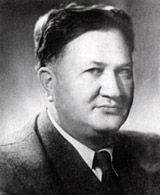 1945-1955: prof. Zygmunt Wojciechowski | 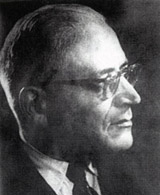 1956-1958: prof. Kazimierz Piwarski |
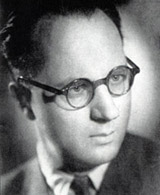 1959-1961: prof. Gerard Labuda | 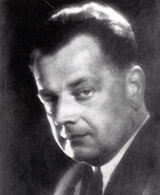 1961-1964: prof. Michał Sczaniecki |
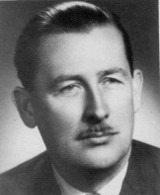 1964-1965: prof. Zdzisław Kaczmarczyk | 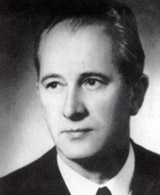 1966-1973: prof. Władysław Markiewicz |
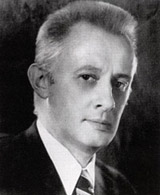 1974-1978: prof. Lech Trzeciakowski | 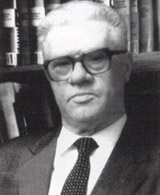 1978-1990: prof. Antoni Czubiński |
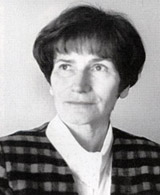 1990-2004: prof. Anna Wolff-Powęska | 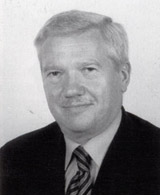 2004-2011: prof. Andrzej Sakson |
| Â |

